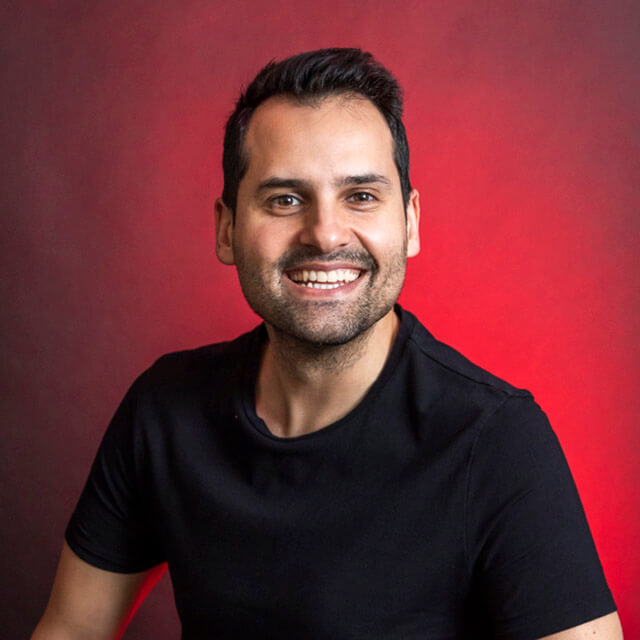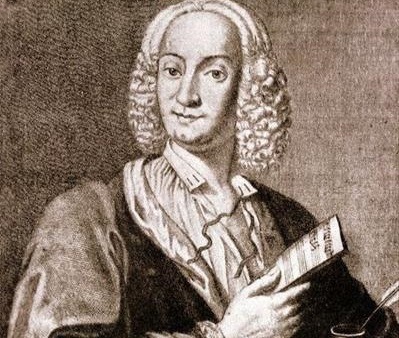Blues is the root of almost all modern music and has produced countless legendary tracks that became immortal on six strings and 88 keys. In this article, we present 10 unforgettable blues and blues‑rock songs every musician should know.

Founder and Piano teacher
Table of contents
From being a genius, admired during his lifetime, to his forgotten and impoverished death far from home, Antonio Vivaldi (1678-1741) savored all facets of a great artist’s biography. His father had actually planned a career as a chastely priest for his firstborn.
At first, the 25 year old “good son” obeyed his family and applied for his priestly ordination. Ironically, it was mainly due to his father that Vivaldi soon started writing music history as a composer.
 Of the nine children of violinist Giovanni Battista Vivaldi, only his first son Antonio inherited the musical talent of his father. Antonio Vivaldi knew how to handle the instrument like a virtuoso from an early age, and was able to frequently substitute for his father in the San Marco Orchestra.
Of the nine children of violinist Giovanni Battista Vivaldi, only his first son Antonio inherited the musical talent of his father. Antonio Vivaldi knew how to handle the instrument like a virtuoso from an early age, and was able to frequently substitute for his father in the San Marco Orchestra.
However, the desire for social recognition was bigger than his enthusiasm for making music. While his father had made it from barber to professional musician, Antonio turned to a religious career at the age of 14.
After his priestly ordination, Vivaldi blamed an asthmatic condition, which made singing at the obligatory mass more difficult, for quitting his laboriously learned profession after only one year, to seek new challenges.
His artistic nature was a major reason for his interest in music. As a violin teacher at the Ospedale della Pietà – an institution for about 6000 illegitimate and orphaned girls in Venice – he was admired by numerous female students.
Vivaldi, soon known as the “red priest” because of his hair colour, enjoyed the recognition he received. In teaching, however, he focused on the merit system.
Since the Ospendale was, in no small part, financed by the “chair rentals” of the schoolgirls’ concerts held every weekend, Vivaldi’s work made an important contribution to the preservation of the institution. Because the orphans usually performed the compositions of their teacher, he knew how to use the weekly events to work on his own career.
When the concerts of the Ospendale became so popular that they attracted many music lovers to Venice from abroad, Vivaldi soon found the girls’ school too small, although the composer remained on his “musical springboard” in various functions until the year before his death. However, he continued his career at the Sant’Angelo theatre in Venice, and as artistic director in Mantua in more appropriate positions.
He created numerous operas that were made for the big stages. Although “only” about 50 such works have been handed down, Vivaldi prided himself on having created almost 100 operas.
To finance his increasingly expensive way of life, Vivaldi’s works were also used in numerous theatres throughout northern Italy.
Thanks to his incredible working speed, Vivaldi was able to meet all the deadlines for his many customers that were queuing for his services. A standard concert was delivered within 24 hours. For composing an entire opera, on the other hand, Vivaldi had to devote a full week.
Imagine sitting at the piano, your fingers gliding effortlessly across the keys as you play melodies that move your heart. With music2me, you can learn piano at your own pace – step by step with a system that truly helps you progress, whether you’re a beginner or already advanced.
Over 400 video lessons & downloadable sheet music
Interactive tools like Skill Check & smart practice mode
Weekly live classes & personal teacher support
Exclusive Discord community for motivation & exchange
His composition of the Violin Concertos & The Four Seasons” (Le quattro stagioni) marked the heyday of his musical production: In view of the enormous abundance of musical works, it is by no means unusual that the exact year of creation and other background info are unknown.
We do know that the concerts, before their publication in Amsterdam in 1725, had probably been in the master’s drawer for quite some time as part of the Opus 8 collection “The Venture of Harmony and Invention”. The fact that the “Four Seasons” were dedicated to Count Venceslaw Morzin suggests that the composition was written some time before its publication.
Since Vivaldi was always keen to release new works as soon as possible through his publisher, it remains peculiar as to why he waited so long before releasing The Four Seasons:
One possible reason was that the rather experimental character of the program music did not meet the popular taste of the time. The characteristic sonnets, that precede each of the four concerts, were obviously only written by Vivaldi shortly before the Opus collection was printed – and anything that did not fit with the lyrical introduction in the original composition was forced into place.
Because the “Four Seasons” follow Vivaldi’s early standard trio movements, it can be assumed that the composition of these four violin concertos took place almost as a side project; Vivaldi’s experience as a virtuoso violinist and experienced composer, imitating the numerous natural phenomena was likely child’s play to him.
Apparently, a true musical genius does not need to spend long nights brooding over scores in order to leave behind a body of work that lasts for centuries. However, Vivaldi’s fast working pace was one of the reasons for his “eternal fame”:
After all, producing a lot of output is still considered by many artists to be the best chance of creating a true masterpiece at some point.
Try to follow the notes to fully appreciate the virtuosity of the “Four Seasons” and watch our video tutorial to find out more about this technically demanding composition
Antonio Vivaldi certainly immortalised himself in the history of music. Nevertheless, as fate would have it, the great musician fell into oblivion, at least for his contemporaries.
In the 1730s, Vivaldi’s insubordinate way of life had led to a break up with Ospendale and music lovers in Venice increasingly turned to new heroes. Vivaldi’s later attempt at starting a new career in Vienna failed.
When he died, ten months after his arrival in Vienna, it was unnoticed both in Austria and in his Italian homeland.
Blues is the root of almost all modern music and has produced countless legendary tracks that became immortal on six strings and 88 keys. In this article, we present 10 unforgettable blues and blues‑rock songs every musician should know.
Anyone can learn piano – all you need is the right method, a bit of patience, and a love of music. This guide will take you through the most important basics, from the keyboard layout to note values, time signatures, and your first melodies and chords. With simple exercises and practical tips, you'll quickly see progress – perfect for beginners!
Looking for the best piano learning app? We compare the top apps for learning piano online – flexible, personalised, and available anytime ✓